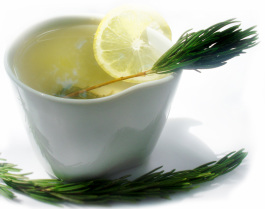
Scientific name: Rosmarinus officinalis
Common name: Rosemary
Family: Labiatae
Organic rosemary oil extract has originated from Germany, and has benefited society ever since. Being native to the Mediterranean, it is a fragrant herb with leaves that resemble needles. There are 5 different ways rosemary extract can be produced. These methods include: dried rosemary leaves by acetone extraction, extraction of rosemary leaves by means of supercritical carbon dioxide, a partially deodorized ethanolic extract of rosemary, a deodorized ethanolic extract of rosemary, or from extract which is decolourized and deodorized rosemary extract obtained by a two-step extraction using hexane and ethanol.
In regards to the food, cosmetic, pharmaceutical and therapeutic, and personal use industry, rosemary extract is the best alternative for sodium benzoate. This product acts against dandruff, enhances hair growth, and is suited to protect against oxidation in food products. These food products may contain meat products, sauces, marinades, sauces, condiments, and salad dressings. Rosemary Extract also makes great a spectacular herbal tea!
Common name: Rosemary
Family: Labiatae
Organic rosemary oil extract has originated from Germany, and has benefited society ever since. Being native to the Mediterranean, it is a fragrant herb with leaves that resemble needles. There are 5 different ways rosemary extract can be produced. These methods include: dried rosemary leaves by acetone extraction, extraction of rosemary leaves by means of supercritical carbon dioxide, a partially deodorized ethanolic extract of rosemary, a deodorized ethanolic extract of rosemary, or from extract which is decolourized and deodorized rosemary extract obtained by a two-step extraction using hexane and ethanol.
In regards to the food, cosmetic, pharmaceutical and therapeutic, and personal use industry, rosemary extract is the best alternative for sodium benzoate. This product acts against dandruff, enhances hair growth, and is suited to protect against oxidation in food products. These food products may contain meat products, sauces, marinades, sauces, condiments, and salad dressings. Rosemary Extract also makes great a spectacular herbal tea!
 RSS Feed
RSS Feed